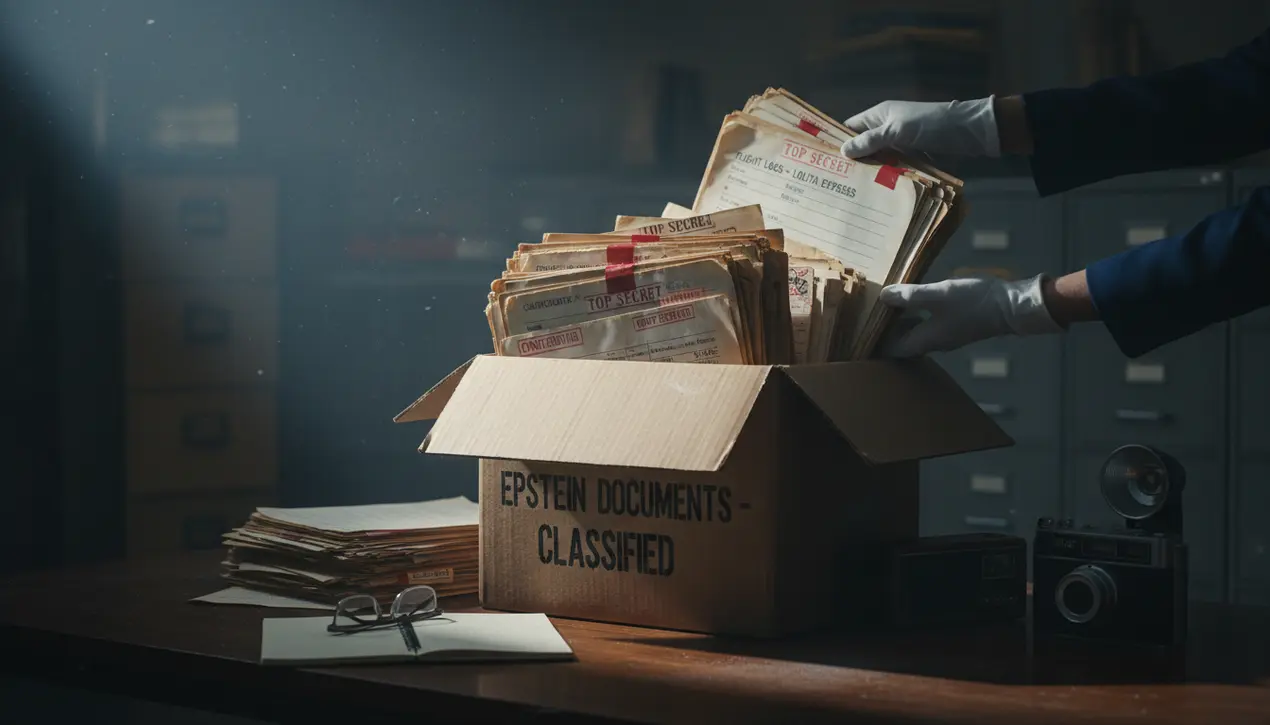
Politicscourts & investigationsCorruption Investigations
Trump Signs Bill to Release Epstein Documents.
RO
Robert Hayes
2 days ago7 min read8 comments
In a move that signals a significant escalation in the long-running effort to achieve transparency in one of the most sordid and politically charged scandals of the modern era, former President Donald Trump has officially signed into law a bill compelling the United States Justice Department to declassify and release the entirety of its files concerning the late financier and convicted sex offender Jeffrey Epstein. The legislation mandates that the Department of Justice, within a strict thirty-day window, must produce all relevant documents in a fully searchable digital format, a provision designed to prevent bureaucratic obfuscation and empower journalists, legal analysts, and the public to conduct their own thorough investigations.This development is not merely an administrative action; it is a political earthquake, the tremors of which are likely to be felt across the corridors of power in Washington, D. C., and in elite circles from Palm Beach to London. The Epstein case has long been a festering wound on the body politic, a nexus where immense wealth, unchecked influence, and allegations of horrific criminality converged, creating a conspiracy theorist's playground and a legitimate crisis of public trust.The impending document dump promises to peel back layers of a case that was seemingly closed with Epstein’s controversial death in a Manhattan jail cell in 2019, an event that itself spawned a thousand questions and fueled suspicions of a coordinated cover-up. From an analytical standpoint, this forced disclosure can be viewed through a historical lens, reminiscent of the gradual, painful unraveling of the Watergate scandal or the incremental releases that characterized the Clinton-Lewinsky affair, where each new piece of evidence shifted the public narrative and altered the political landscape.The key question now is what these files will ultimately reveal: flight logs for Epstein’s private jet, the infamous 'Lolita Express,' could implicate a wider circle of powerful individuals; sealed depositions and witness statements may shed new light on the operational methods of his criminal enterprise; and internal DOJ communications could expose the extent of the initial investigative failures or potential political interference during earlier administrations. The strategic implications are profound.For the Biden administration's Justice Department, this creates a no-win scenario of enforced transparency, forcing it to release materials that could embarrass allies, complicate foreign relations, and ignite media firestorms. For figures like Prince Andrew, whose association with Epstein has already severely damaged his reputation, the release represents an existential threat, potentially providing the concrete evidence that has so far been elusive.Domestically, the fallout will be intensely partisan. While many will hail it as a victory for victims and accountability, others will inevitably weaponize the contents, using any new names or details to attack political opponents in what is already a superheated election cycle.The act of a former president signing a bill to investigate a scandal with which his own name has been tangentially, though repeatedly, linked by media and political opponents, adds a layer of profound irony and strategic calculation to the entire affair. In the final analysis, this is more than just a data release; it is a deliberate act of institutional demolition, a controlled detonation on the fortress of official secrecy that has protected the powerful in the Epstein saga for decades. The thirty-day countdown has begun, and when it concludes, the political and social reverberations will likely redefine the scandal for a new generation, finally offering a measure of clarity, or perhaps, unleashing an even greater storm.
#Epstein files
#Jeffrey Epstein
#US Justice Department
#Trump
#bill signing
#document release
#investigation
#featured
Stay Informed. Act Smarter.
Get weekly highlights, major headlines, and expert insights — then put your knowledge to work in our live prediction markets.
Comments
Loading comments...
© 2025 Outpoll Service LTD. All rights reserved.